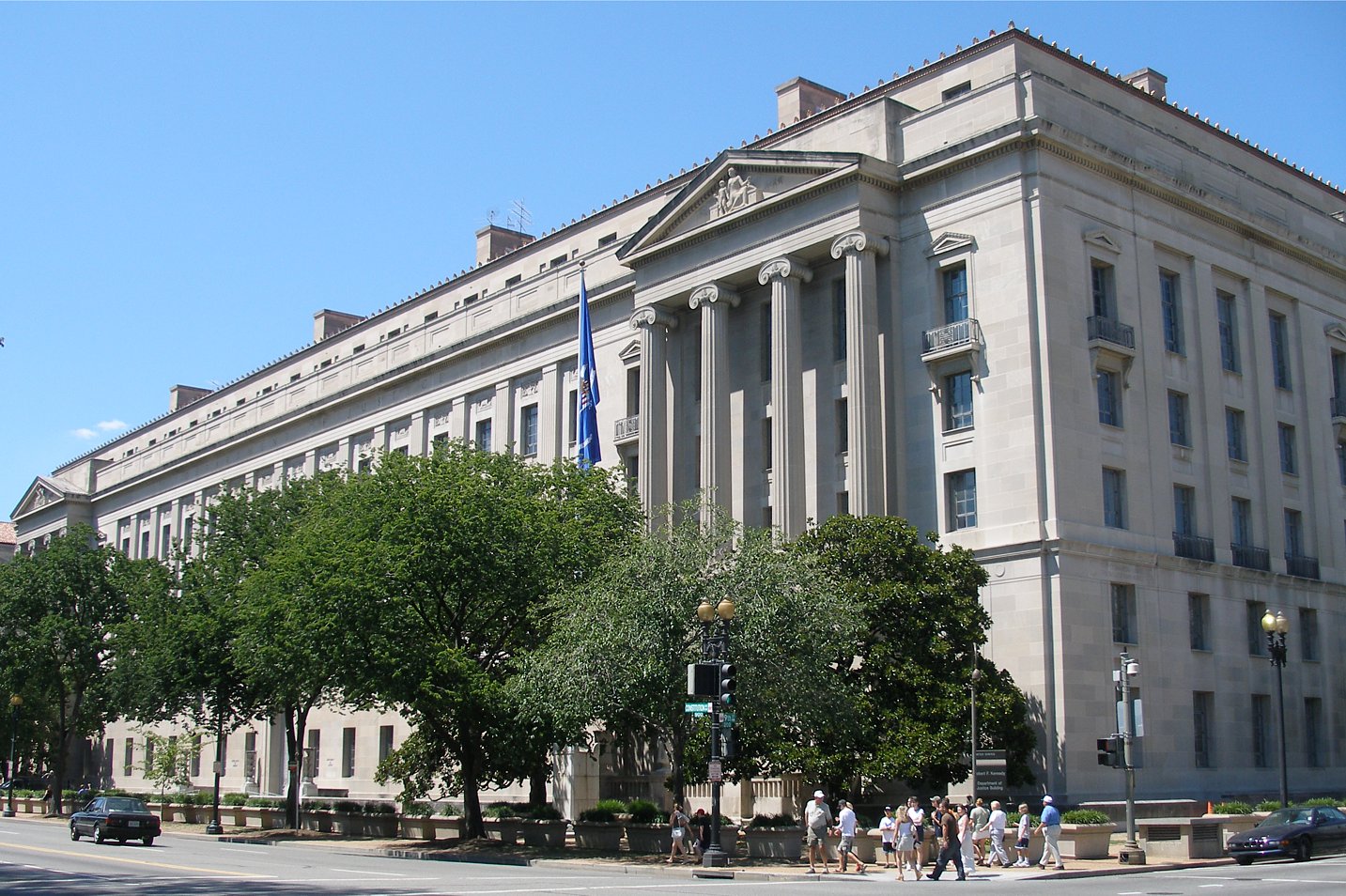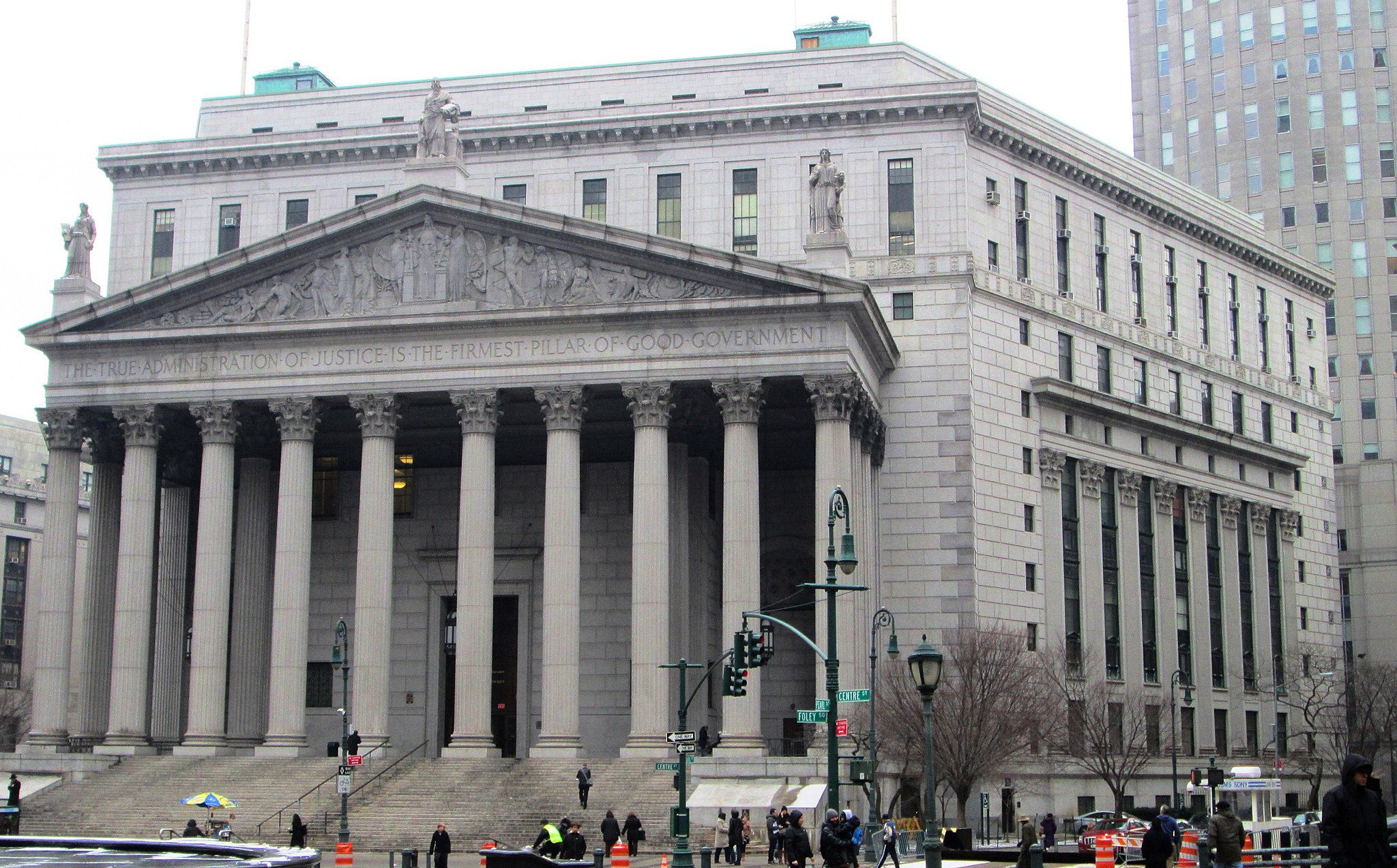The Judiciary Learns To Equilibrate Between the President and the Legal Resistance
Last year, Judge William H. Pryor, Jr.
Published by The Lawfare Institute
in Cooperation With

Last year, Judge William H. Pryor, Jr. of the Eleventh Circuit Court of Appeals delivered an important lecture, titled "Honoring Good Jurists and Opposing Bad Rulings." “As important as it is for the legal community to honor jurists who adhere to the rule of law,” he explained, “it is also important that the legal community critique the courts when we fail in our duty.” I expressed a very similar sentiment earlier this week on the need to speak out against resistance jurisprudence. “It is because I care so deeply about the integrity of the courts,” I wrote, “that I feel compelled to fault judges who diminish that integrity.” Some decisions enjoining President Donald Trump’s executive actions have failed to adhere to the rule of law. More recent decisions, while I think they get the bottom line wrong, strived to comply with that duty. This post will address, broadly, the wrong and right ways for courts to rule against President Trump with respect to the travel ban and the Deferred Action for Childhood Arrivals policy recision.
Who got it wrong? Judge William Alsup’s injunction against the DACA rescission, as I noted on National Review, included “talking points [that] could have been plagiarized from the MSNBC chyron.”
Who got it right? In December, the Ninth Circuit followed a very narrow path to invalidate travel ban 3.0 on statutory grounds. (Moments before this piece was to be published, the Fourth Circuit released a 285-page opinion invalidating the latest iteration of the travel ban; I will address that decision in a subsequent writing.) More recently, Judge Nicholas Garaufis’s injunction against the DACA rescission offered a fairly sober analysis of the legal questions presented. Again, these latter opinions will be likely reversed by the Supreme Court, but they (generally) fall within the normal bounds of judicial discourse.
Punditry and Sobriety
Two district courts have halted the Trump administration’s recision of DACA. First, in January, Judge William Alsup of the northern district of California engaged in what I described as an “an amateur act of punditry.”
Judge Alsup paints the picture of a divided White House, wherein “the Chief Executive publicly favors the very program [his Administration] has ended.” Citing a “presidential tweet,” the court suggests that DACA’s recision “was contrived to give the administration a bargaining chip to demand funding for a border wall in exchange for reviving DACA.” These talking points could have been plagiarized from the MSNBC chyron. Such rhetoric in a judicial decision would have been unthinkable barely a year ago. But now it passes for the new normal. Once again, the judiciary has attempted to shackle President Trump from making his own judgments about how to exercise his own power. The Supreme Court has reversed Judge Alsup’s outlandish rulings on DACA before.
And it will do so again. But that doesn’t meant that this issue is a slam-dunk for the government. As I noted in a follow-up post, courts should read Attorney General Jeff Sessions’s memorandum justifying the rescission in a “charitable” fashion. Such a construction is “consistent with how courts would traditionally view official communications from a coordinate branch of government: with deference, not hostility.”
On Tuesday, Judge Nicholas G. Garaufis of the eastern district of New York issued another nationwide injunction halting the rescission of DACA, but he did so in a sober fashion—similar to the Ninth Circuit’s ruling on the travel ban—that will likely serve as model for a future dissent on the Supreme Court. Specifically, Judge Garaufis’s ruling avoids three indicia of resistance jurisprudence. First, he doesn’t reach out to resolve difficult constitutional questions that are not necessary to resolve the issue. Judge Alsup, in contrast, found that President Trump’s animus towards Hispanics renders the rescission unconstitutional under the due process clause of the Fifth Amendment. This holding was completely gratuitous, because he had already enjoined the policy on statutory grounds. More pressingly, it risked disabling the president from acting in numerous foreign and domestic policy contexts. Second, Judge Garaufis avoided idle political speculation, such as Judge Alsup’s theory that the DACA rescission is really a “bargaining chip to demand funding for a border wall.” This sort of punditry has no place in a judicial opinion. (Though Garaufis does include two citations to Twitter that are superfluous.) Third, Judge Garaufis does not challenge President Trump’s good faith, whereas Judge Alsup called the attorney general’s justification a “contrived excuse.”
I see Judge Garaufis’s decision, which ultimately falters for reasons discussed below, as a signal that the judiciary is learning to equilibrate between President Trump and the legal resistance. Misguided decisions like those of Judge Alsup are on the wane. Instead, I’ve sensed that jurists have started to recognize that there is a way to rule against the Trump administration without meandering beyond the bounds of normality and the presumption of regularity. I don’t expect all courts to suddenly start rubber-stamping Trump’s actions. Indeed, based on the harsh comments Judge Garaufis made from the bench in 2016 about Judge Hanen’s injunction against DAPA, I suspect this opinion shielded his true thoughts about President Trump. More recently, Judge Garaufis told a Justice Department lawyer, “you can't come into court to espouse a position that is heartless.” Fortunately, none of that hostile rhetoric came through in the opinion. It focused on legalities. There is a right and wrong way to rule against the president’s executive powers. Other judges: Take note. (I will leave to others the role of justifying Judge Garaufis’s newfound appreciation for the nationwide injunction.)
Enough praise for now. Judge Garaufis commits several legal errors on which his decision ultimately falters. Alas, the government bears some of the blame for the arguments it did, and not advance.
The Right and Wrong Ways To Read Sessions’s Letter
Shortly after Judge Alsup’s ruling, I published on Lawfare a careful analysis of Attorney General Jeff Sessions’s letter justifying the rescission of DACA. I wrote:
What follows is a line-by-line parsing of the attorney general’s letter. It is, admittedly, charitable; several of Sessions’s choices are somewhat confounding. But this sort of reading is consistent with how courts would traditionally view official communications from a coordinate branch of government: with deference, not hostility.
Judge Garaufis cited and quoted this post in his opinion:
Some academic commentators have offered interesting arguments as to why courts should review deferentially Defendants’ decision to end the DACA program. See, e.g., Josh Blackman, Understanding Sessions’s Justification to Rescind DACA, Lawfare (Jan. 16, 2018, 8:00 AM), https://www.lawfareblog.com/understanding-sessionss-justification-rescind-daca (arguing, based on an “admittedly charitable” reading of the Sessions Letter, that Regents erred by, among other things, failing to consider how the Attorney General’s independent duty to defend the Constitution supported his decision to recommend ending the DACA program).
Despite the fact that my argument is “interesting” (perhaps my least favorite words in legal discourse, whatever it means), the court notes that the government did not raise it, so there is no need to consider it.
Defendants themselves have not pressed these arguments before this court, arguing instead that, if their decision is indeed subject to judicial review, it should be reviewed under the ordinary arbitrary-and-capricious standard of APA § 706(2)(A). (Defs. Opp’n at 10-11.)
Note to the Justice Department: Raise this argument. The attorney general’s letter is not a mere agency document, subject to the arbitrary-and-capricious standard. The attorney general is opining on the president’s constitutional oath and duty to take care that the laws are faithfully executed. The letter states:
As Attorney General of the United States, I have a duty to defend the Constitution and to faithfully execute the laws passed by Congress.
This declaration transcends the intricacies of the Administrative Procedure Act. The sort of deference that is warranted for this determination in the separation of power dwarfs Chevron deference.
Alas, this posture has become familiar for me. In the emoluments clauses litigation, I’ve filed amicus briefs contending that the complaints are improperly pleaded against the president in his official capacity, whereas they should be lodged against Donald Trump in his individual capacity. The government has steadfastly refused to raise this argument. During oral argument, Judge Peter Messitte in Maryland cited our brief, and asked the plaintiffs why they did not bring suit against Trump in his individual capacity. In response, counsel said they would amend their complaints. As my colleague Seth Barrett Tillman and I explained on the Volokh Conspiracy (Parts 6, 7, and 8), our official-versus-individual capacity argument is likely the only thing standing between President Trump and a discovery order. I’ve written about the disconnect between the academy and the Justice Department during the Obamacare litigation. Often, the Justice Department is constrained in the sort of arguments it can raise. But here, the court practically invited the department to make this argument advanced by a mere “academic commentator.” Do it. Going forward, the department needs to treat this document as a constitutional opinion from the attorney general, that warrants deference.
Fortunately, I don’t think there is any waiver here, because the letter is quite open-ended. This argument can feature prominently in future briefing, either before the Second Circuit, or if the petition for certiorari before judgment is granted (as I suspect it will be), the Supreme Court.
Why is DACA Unconstitutional?
One of my biggest gripes with Attorney General Jeff Sessions’s letter is that he does not explain why DACA was unconstitutional. He merely says “[s]uch an open-ended circumvention of immigration laws was an unconstitutional exercise of authority by the Executive Branch.” (He also references the Fifth Circuit’s decision, which did not reach the constitutional question.) Judge Garaufis jumps on this point, concluding “DACA is not unconstitutional simply because it was implemented by unilateral, executive action without express congressional authorization.”
Here, the Justice Department is trying to have its cake and eat it too. The attorney general declared a policy unconstitutional, but did not say why. As a result, Sessions can virtue signal without actually restricting the executive branch’s power going forward. But he can’t have it both ways. His lawyers, to defend his assertion, will have to explain why it is unconstitutional. This is an argument that the Justice Department has assiduously avoided.
I offered two grounds for DACA’s unconstitutionality:
First, as I argued at the time, Deferred Action for Parents of Americans and Legal Permanent Residents (DAPA) amounts to a violation of the take care clause of the Constitution. No court reached this issue, though the Supreme Court did add a question presented about this claim. There is a second constitutional claim that has not garnered nearly as much attention: The Obama administration’s open-ended reading of certain definitional provisions of the Immigration and Nationality Act (INA) would run afoul of the nondelegation doctrine. In the brief I submitted to the Supreme Court (Pages 24-25), I contended that the Supreme Court should avoid that broad reading by narrowly construing the INA.
As a senator, Sessions adopted the former arguments in an amicus brief he joined in support of Texas’s challenge to DAPA:
DAPA reflects an unmistakable effort to take action that is “incompatible with the expressed or implied will of Congress,” Youngstown Sheet & Tube Co. v. Sawyer, 343 U.S. 579, 637 (1952) (Jackson, J., concurring in the judgment), and correspondingly contravenes both the immigration laws and the Executive’s constitutional duty to Take Care that the laws be faithfully executed. . . . Additionally, the Take Care Clause of the U.S. Constitution requires the President to “take Care that the Laws be faithfully executed.” U.S. Const. art. II, § 3. This provision of the Constitution obliges the President “faithfully” to carry out the laws that Congress has enacted and constitutes an important limitation on the independent discretion of the Executive. It recognizes that the representative system of government can result in the election of legislative and executive officials that have conflicting policy visions, and elevates the considered policy judgments of Congress over those of the Executive by forbidding the Executive from authorizing action that violates federal statutes. By effectively suspending the enforcement of our immigration laws against millions of aliens in the United States, and moreover by granting those foreign nationals benefits to which they are not lawfully entitled, DAPA violates the letter and spirit of the federal immigration law that the Executive is constitutionally obligated to enforce.
If the Justice Department simply argues what Sessions contended in his brief, the government will win the case with ease. And in the process, they will score a decisive victory for the separation of powers. Critically, the department does not need to convince all nine justices that these conclusions are correct, let alone convince every district court judge in the country. Rather, the question is whether these were appropriate bases for the attorney general to conclude the policy was unconstitutional. Given the sort of deference that is warranted in this case—where the executive branch is constraining its own authority—the answer has to be yes, the decision was properly justified.
Judge Garaufis notes, “The court does not address whether the DACA program might be unconstitutional on grounds other than those identified by the attorney general, as any such grounds are not fairly before the court.” Once again, here is another invitation for the Justice Department to articulate the grounds of unconstitutionally clearly.
Here is my recommendation: The attorney general should issue an additional opinion that explains why he concluded DACA is unconstitutional. In that letter, he should rescind the 2014 Office of Legal Counsel opinion that affirmed DAPA and DACA’s legality. He can’t have his cake and eat it too. With the current strategy, he may be stuck eating crow. Following my recommended strategy would unify the executive branch’s position and provide a path to victory in the instant litigation.
It is possible that the White House is hesitant to put out such an opinion, because President Trump may want to “revisit” DACA and extend the policy if a political deal is not worked out. If that is the case, then Sessions will have to consider different employment options. He has stated his unequivocal opinion that DACA is unconstitutional. Any deviation from this position would require him to tender his resignation.
Winding Down
Judge Garaufis’s final reason for halting the DACA rescission is that the rationale is “internally contradictory.” If in fact the government determined that the policy is illegal or unconstitutional, then it should be halted immediately. “Rather than terminating the program forthwith, however, Acting Secretary of Homeland Security Elaine Duke directed her subordinates to begin a phased ‘wind-down of the program,’” the court observed. There is an intuitive appeal to this argument. Indeed, I’ve advanced it myself. How can the attorney general support, even temporarily, a policy he’s deemed unconstitutional? Or, as Judge Garaufis queried, “If the DACA program was, in fact, unconstitutional, the court does not understand (nor have Defendants explained) why Defendants would have the authority to continue to violate the Constitution, albeit at a reduced scale and only for a limited time.”
Here, Judge Garaufis answers his own question in Footnote 14: “The court expresses no view as to whether the revocation of existing DACA benefits would be consistent with the Due Process Clause or other potentially applicable protections.” I am fairly confident that if the attorney general had ordered the immediate revocation of all existing benefits, a district court somewhere would have issued a nationwide injunction finding a violation of some sort of vested property rights for DACA beneficiaries. Indeed, Judge Garaufis’s own comments from the bench in September 2016 suggest he may have been that judge.
This point illustrates how “litigation risk” does not need to be expressly stated. Often, the government takes action to minimize the risk of lawsuits, acknowledging that it may be in violation of the law for a period of time. These are not “post-hoc” rationalizations, but the sort of decisions that the Justice Department makes on a daily basis. It is preposterous for courts to dismiss this justification out of hand.
More to the point, unlawful policy often cannot end instantly. In the normal course, where the government enforces an unconstitutional policy, most courts will allow a period of time to phase out that practice. Consider something as mundane as a city’s policy concerning police brutality, or even school integration. The change occur “with all deliberate speed,” not instantly. More specifically, the Obama administration continued to enforce the Defense of Marriage Act, even after Attorney General Eric Holder concluded it was unconstitutional and refused to defend it in court. Contradictory, perhaps. But irrational? Far from it. Mike Dorf makes much the same point in this post.
Alas, in today’s wham-bam-thank-you-ma’am atmosphere of universal injunctions, courts have become accustomed to immediately changing the government’s policy on a whim, only to be reversed by the Supreme Court a few weeks later. Steering a battleship takes time. I have no problem with a six-month period to wind down the policy.
* * *
Ultimately, I expect both the travel ban and the DACA rescission to be upheld by the court this term. Though the opinions of the Ninth Circuit on the travel ban and Judge Garaufis will likely be reversed, they will at least have the virtue of giving the president the proper deference for his place within the separation of powers. We should always, as Judge Pryor suggested, honor good jurists, and oppose bad rulings.




